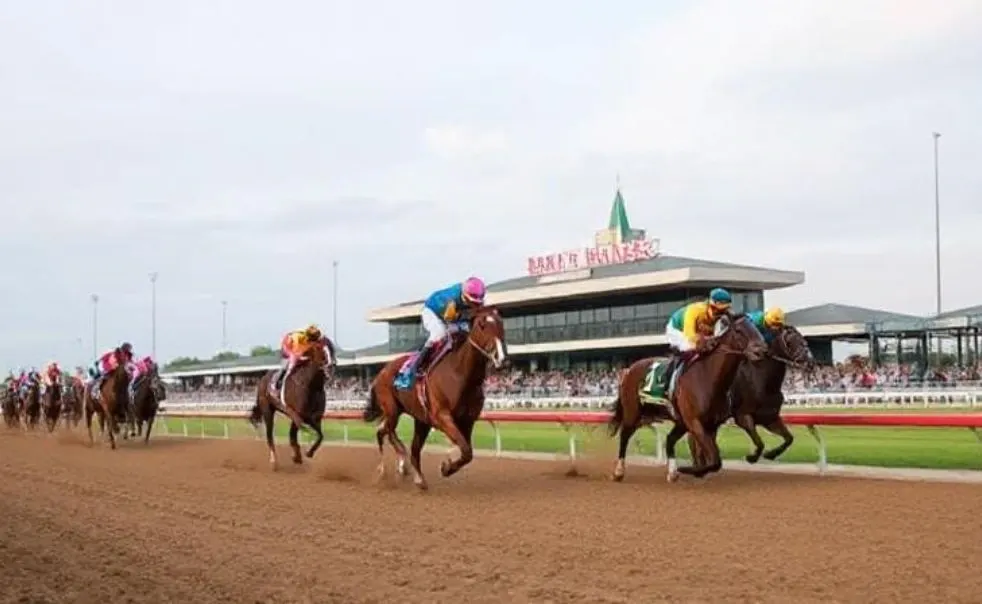Drug Possession Central in Juarez Case

Elle
Oct 17th 2025
Likes
Share:
The question of what legally constitutes “possession” of a banned substance was at the center of a Horse Racing Integrity & Welfare Unit (HIWU) case involving trainer Eusebio Juarez, resulting in a 24-month suspension and $18,000 in fines.
The case originated from an inspection on January 29 at Oaklawn Park, where Juarez was working as an assistant to trainer Ingrid Mason. As part of a compliance search, Juarez’s vehicle was checked by HIWU agents who discovered two hypodermic syringes in the lower center console, one 35 ml and one 12 ml, both with capped needles. The content of the syringes was analyzed in a lab, the outcome was diisopropylamine, a substance that is on the list of prohibited items under the HIWU regulations.
Diisopropylamine is banned because it causes harm to racehorses. This chemical is attributed with the elevated oxygen usage and glucose consumption in the brain of the horses, hence allowing the animals to gain a performance advantage that is not fair. The compound has been abused in thoroughbred racing and endurance sports and for that reason, having it is considered as a serious offense under anti-doping rules.
HIWU classifies possession as having custody or control of a prohibited substance or method, regardless of intent to use in Oaklawn Park. The purpose of this regulation is to limit the chances of abuse and safeguard the well-being of racehorses.
In fact, a month after the violation was reported to him, Juarez in his written reply denied the ownership of the syringes and the substance detected in the car and further stated that he had no intention of using them. Moreover, he asserted that the materials were those of Luis Terrazas, a friend, and car/mechanic from Hot Springs, Arkansas.
Juarez also explained that Terrazas had left the syringes in the car when he was doing the repair work earlier that day. The trainer stated that Terrazas intended to use the diisopropylamine to treat injured roosters on his farm, not racehorses. To support this explanation, Juarez provided an unsigned and unnotarized letter described as an affidavit from Terrazas.
Despite Juarez’s defense, HIWU determined that the evidence met the criteria for possession under its rules. The organization emphasized that actual knowledge or intent to administer the substance is not required to establish a violation. The simple presence of a prohibited item in a trainer’s vehicle or on premises under their control is sufficient to constitute possession.
HIWU officials noted that the purpose of such strict liability is to uphold integrity and accountability within the sport. Trainers are expected to maintain environments completely free of banned substances or paraphernalia. Such things being there whether or not the owners have claimed them, are in fact materials that by their very nature undermine the honesty of the race at Oaklawn Park.
In consequence, HIWU handed out a two-year suspension to Juarez and charged him with $18,000 in fines. The ban on all his racing-related activities runs from the start of the time period when he is not allowed to do any training, enter horses, or be in the racing facilities with the areas that have been restricted.
The decision reflects HIWU’s ongoing commitment to enforcing anti-doping standards established under the Horseracing Integrity and Safety Act (HISA). The company has implemented a policy of absolute intolerance against having illegal substances and stresses that it is up to the trainers and their personnel that the rules are observed.
The story of Juarez is a reflection of the confusions that continue to appear when the regulations of the racing industry in relation to possession are interpreted. Frequently, there are questions concerning control or management of the substances, especially if they are discovered in common areas or cars. But, the rules of HIWU barely allow for forgiving, considering that they take the strictest enforcement to be instrumental in stopping doping behaviors and securing the trust of the public in the sport.
Industry watchers point out that even though Juarez’s reasoning might have opened questions about his purpose, doping regulations are structured in a way that they significantly reduce the room for subjective interpretation. This incident is a warning for the trainers as well as the personnel of the stables, who might mistakenly think that the responsibility does not cover the things they have full control over such as cars and other equipment.
A suspension of Juarez’s work is a big step backward in his professional life. Working with well-known trainers like Ingrid Mason had opened up the competition circuit for him in horse racing, so he was going to have a good career. Juarez will have to start creating a positive image of himself again after the suspension period has come to an end.
Up till now, Juarez and Terrazas have refrained from making any additional public statements about this issue. HIWU has confirmed that the case is closed, and the penalties will stand as issued.
The decision reinforces the racing authority’s position that possession, even without proof of intent to use, remains a serious violation, one that can carry lasting consequences for professionals within the industry.
